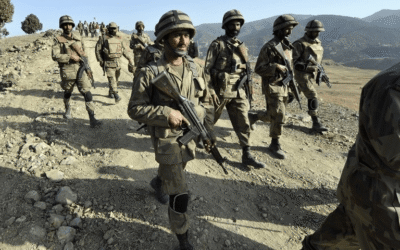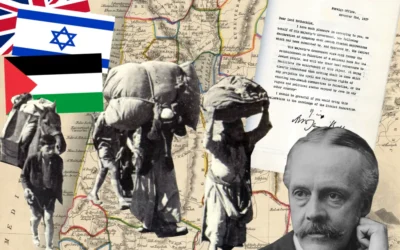For decades, Pakistan has pursued a multi‑vector foreign policy—balancing its relations between the United States, China, Russia, the Gulf, and regional neighbours to maintain strategic autonomy. However, mounting internal security issues, economic fragility, and global shifts have put this balancing act under extreme stress, threatening to push Pakistan toward alignment or isolation.
Strains in Global Alignments
China vs. U.S.–India Axis
China remains Pakistan’s all-weather partner—anchored in CPEC, arms, and political backing. Yet Delhi and Washington have deepened defence and strategic ties, including BECA and broader Indo-U.S. cooperation. This triangular dynamic constrains Pakistan’s ability to engage equally with both while safeguarding its interests in Kashmir and western Afghanistan.

Source: Washington Post
Meanwhile, recent U.S. terrorist designations—such as labelling TRF (linked to Lashkar-e-Taiba) as a global terrorist entity—demonstrate U.S. willingness to act in concert with India’s counterterrorism objectives, further isolating Pakistan diplomatically.
Pivoting Regions That Offer Narrow Choice
While Islamabad has sought regional depth in the Middle East and Central Asia—through partnerships with Turkey, Iran, Azerbaijan, and Tajikistan—its ideological stance over Palestine and refusal to consider normalisation with Israel may limit broader Gulf economic integration and alienate pragmatic partners.
Internal Constraints Weakening Diplomatic Flexibility
Security Challenges & CPEC Risks
Persistent militant attacks against CPEC projects and Chinese nationals have raised alarm in Beijing. This has strained trust, required costly security measures, and clouded the future of CPEC, Pakistan’s flagship foreign policy instrument.
Economic Instability
Pakistan’s high-debt fiscal spiral, fluctuating reserves, and reliance on IMF bailouts reduce its ability to offer diplomatic incentives. The domestically unaddressed governance crisis limits room to manoeuvre in foreign capitals.
Political Volatility
Frequent shifts in civilian administrations, military influence, and populist narratives have led to pragmatic inconsistency—raising questions abroad about Pakistan’s predictability as a partner.
The Narrowing Diplomatic Options: Realpolitik or Isolation?
Pakistan now faces three constrained paths:
- Closer alignment with China to preserve economic and strategic lifelines—risking alienation from the West and limiting interaction with emerging powers.
- Retrying reset with the U.S., but hampered by terrorism allegations, political polarisation, and limited diplomatic leverage. India’s proximity with the U.S. harms Pakistan’s interest.
- Pivoting to Russia or Gulf actors—beneficial but insufficient to reclaim full strategic autonomy or economic resilience.
Yet each choice carries trade-offs, reducing the flexibility that once defined Islamabad’s policy.
Strategic Implications and Regional Fallout
- India’s diplomatic campaign spotlighting Pakistan-supported proxy groups was answered by Islamabad with a weaker counter-narrative, highlighting Pakistan’s inability to control militancy or shape international narratives effectively.

Source: Washington Post
- Lack of unified messaging and soft‑power projection has begun to isolate Islamabad in forums, as emerging powers rally around India’s stability narrative.
Maintaining Strategic Agency Before It Slips
Pakistan’s multi‑vector diplomacy is at a crossroads. Continued internal instability and unbalanced foreign dependencies risk transforming strategic flexibility into forced alignment—or isolation.
To preserve bilateral options and restore strategic manoeuvrability, Islamabad must:
- Stabilize internal security and control violent non-state actors,
- Rein in political volatility and maintain coherent messaging,
- Strengthen public narratives that proactively counter external smear campaigns,
- Deepen ties with non-aligned partners (e.g. Turkey, Russia, Iran) to avoid overdependence.
Without such recalibration, Pakistan may lose the very autonomy its foreign policy has long been built upon.



























